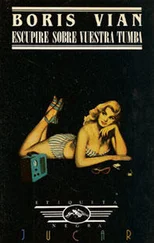The journal Worker published several fragments from Fedukin's memoirs, called The Second Front (August and November 1964). Thus for, this autobiographical "piece" covers only the earliest period of Fedukin's “background activity,'' but judging by this material, in which the vividness of his actual practice is replaced by overly schematic reflections, I am afraid that even the complete edition of his memoirs would not reveal the secret of his genius: it seems to me that, except in actual practice, Fedukin was a theoretical zero. He extracted confessions according to the most profound principles of inner psychology without even being aware that psychology existed; he dealt with human souls and their secrets without knowing that he did. But even now, what really attracts us in Fedukin's remembrances are his descriptions of nature; the austere beauty of the Siberian landscape, the sunrise over the frozen tundra, diluvial rains and treacherous waters cutting through the taiga, the silence of distant lakes, their steel color-ail of which testifies to his undeniable literary talent.
The expression was used by Leo Mikulin to immortalize his own biography, sometime in 1936. This metaphor is less arbitrary than it seems at first glance; Mikulin died of a heart attack in solitary confinement in Suzdal Prison. (Some sources maintain that he was strangled.)
"The Boob of the Evil One" is only one of the famous metaphors for the no-less-famous Talmud, In 1320 Pope John XXII had ordered that every copy of this heretical book be seized and burned at the stakes It is known that at (hat time throughout the entice Christian Archipelago soldiers at the customs barriers would search Jewish caravans, rummaging through smuggled merchandise-silks, leathers, and spices-while paying no attention to it (except out of personal greed), and chat Saint Bernard dogs, with their talent for sniffing out "the writings of the Evil One", would sniff the greasy caftans of bearded merchants and put their muzzles under the skirts of frightened women. Finally the dogs caused a severe epidemic of rabies, and began also biting Christian merchants and putting their muzzles under the robes of innocent pilgrims, priests, and nuns who were smuggling dried fish and Camembert, commonly known as crotte de diable (devil's dung), out of Catalonia. Tracking down the Talmud, however, did nor stop with this; in 1336 alone Jean Guy, called "en fer", "of Iron," seized and burned at the stake two cartloads of that Incriminated book, while his earlier and later accomplishments unfortunately remain unknown to the present researchers. This Jean Guy of Iron, си Fer (some of his opponents, carried away by the associations of the sound of en fer, and by envy pronounced and wrote as Enfer, meaning hell), showed himself much too zealous, it seems: along with the Talmud, he began to bum books not on the official Index of the Pope, and people too, so that for a period of time be was exposed to pressure from the clergy, who were mightily afraid of him, and who acted according to the Pope's, and God's, instructions, к is known that Jean Guy of Iron emerged from this bloody battle the victor, and that most of his opponents were burned at the stake. They say he died in his monastic cell half mad, surrounded by books and dogs.
In connection with the shove sentence, one of the modem commentators, Duvernoy, offers the following explanation: “Although the archives do not give us any information on this, we tend to interpret this statement of Baruch’s not only as a delay from the painful and degrading act of conversion, hut also as part of a shrewd tactic: if his sons succeeded in avoiding conversion, it was reason enough for the learned Baruch not to expose himself to their scorn; and if they were put to death, his decision would be reinforced by pain, and death would seem like redemption.
By the decree of Arnaud Dejean, the Inquisitor of Pamiers, in the diocese of Pamiers, the Jews had the light to live in freedom. This decree, of March 2, 1298, which forbade the inhabitants and the civil authority to treat the Jews "too sternly and cruelly," shows the degree to which the personal attitude and courage of the inhabitants could in hard times change that fate which cowards believe to be inevitable and pronounce to be fate and historical necessity.
For a panorama of Communist sincerity across Europe in World War II, and its various convolutions and involutions, the reader is recommended to read Manes Sperber's novel trilogy Like a Tear in the Ocean.









